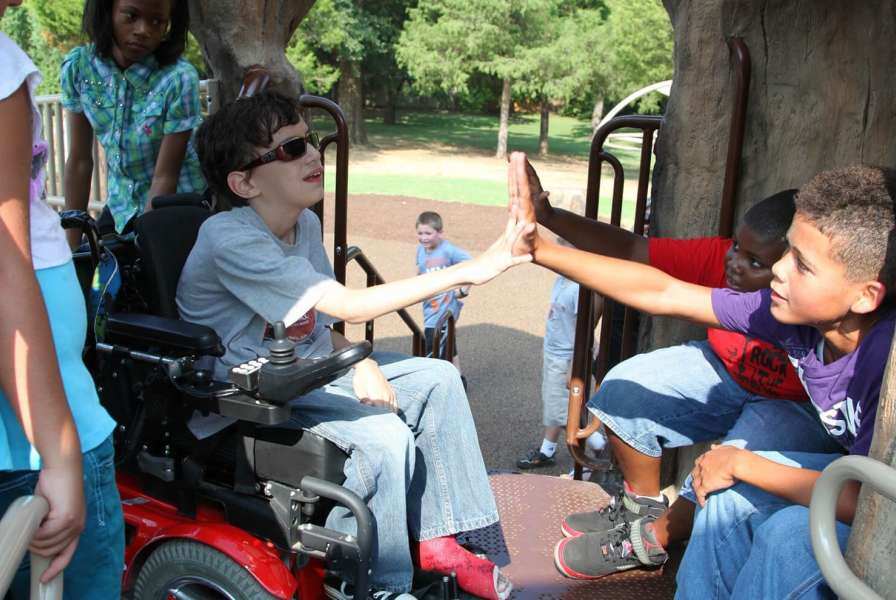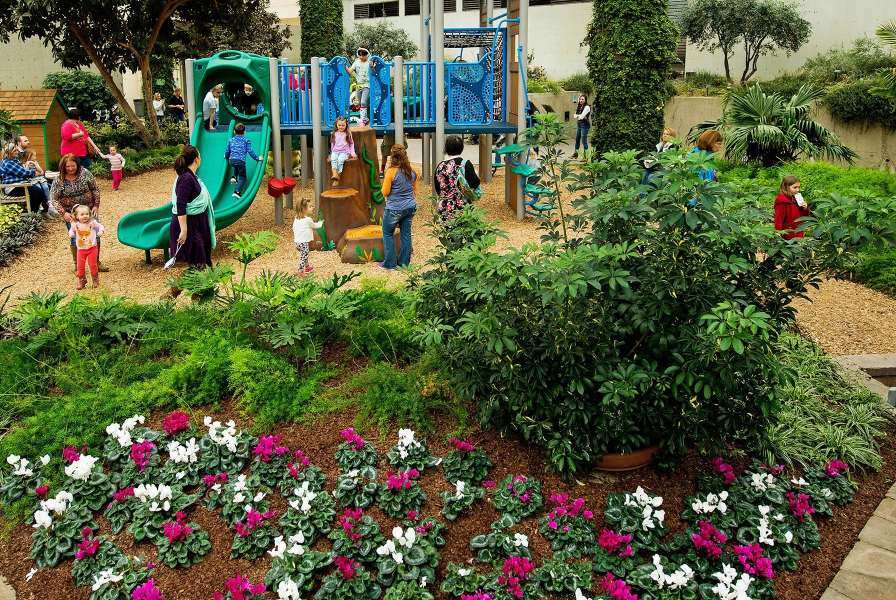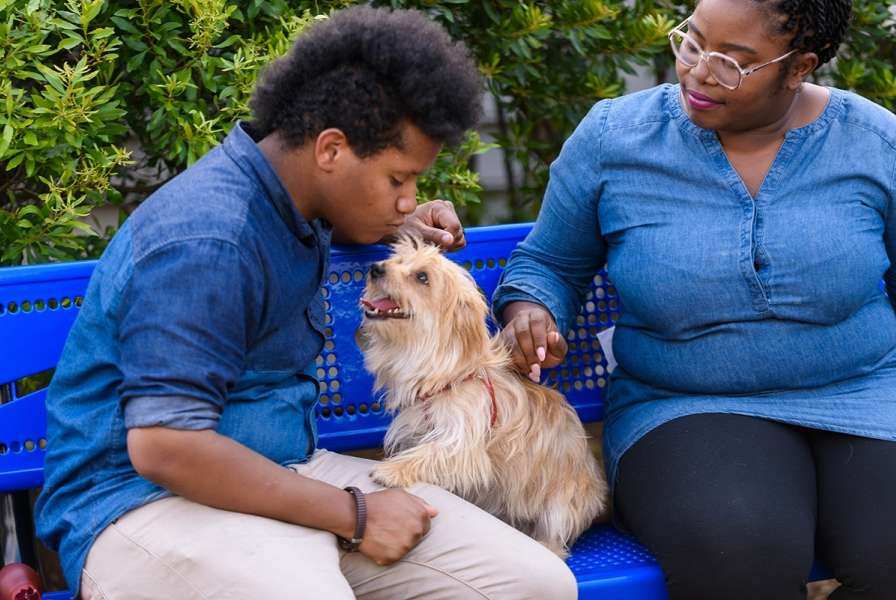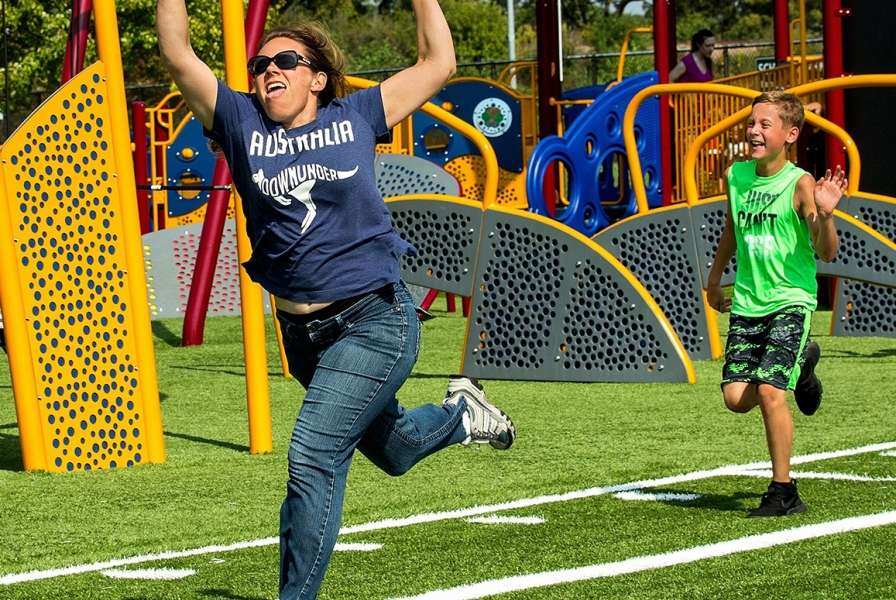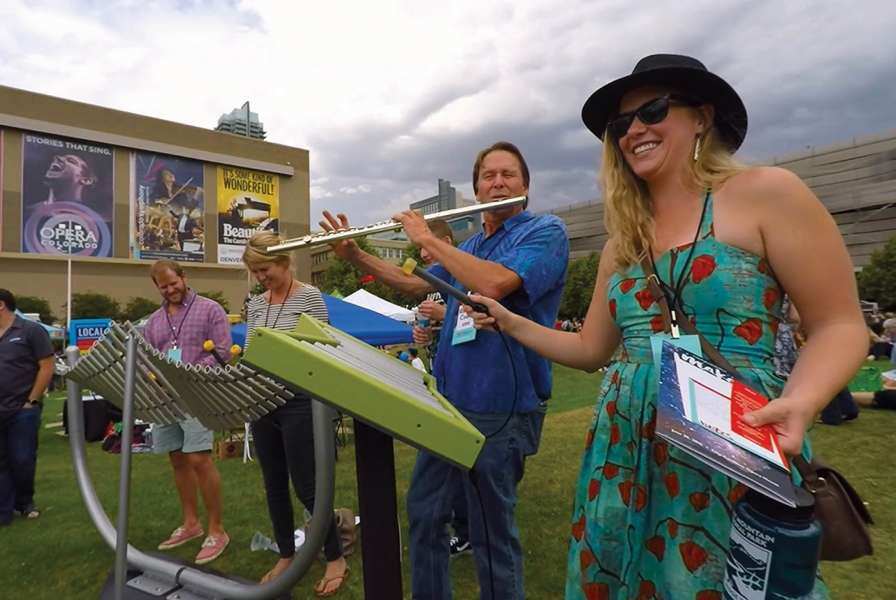Meaningful play is critical for all children. Ample play opportunities improve children's physical health, emotional well-being, social skills, and significantly impact their development. During play, children voluntarily enter into situations that reflect an image of themselves as powerful, active, and competent.
This view of children as powerful, not passive, supports the importance for children with disabilities to experience the capacity to direct their own actions, to make sense of events and situations, and to understand how choices affect themselves and others - creating a sense of ownership in play. Inclusive play experiences help children with and without disabilities discover that they are competent and capable, able to take risks, climb higher, think harder, and foster friendships.
Out of 1,000 children between the ages of 3 and 21, approximately 145 will have some form of disability, as shown below.
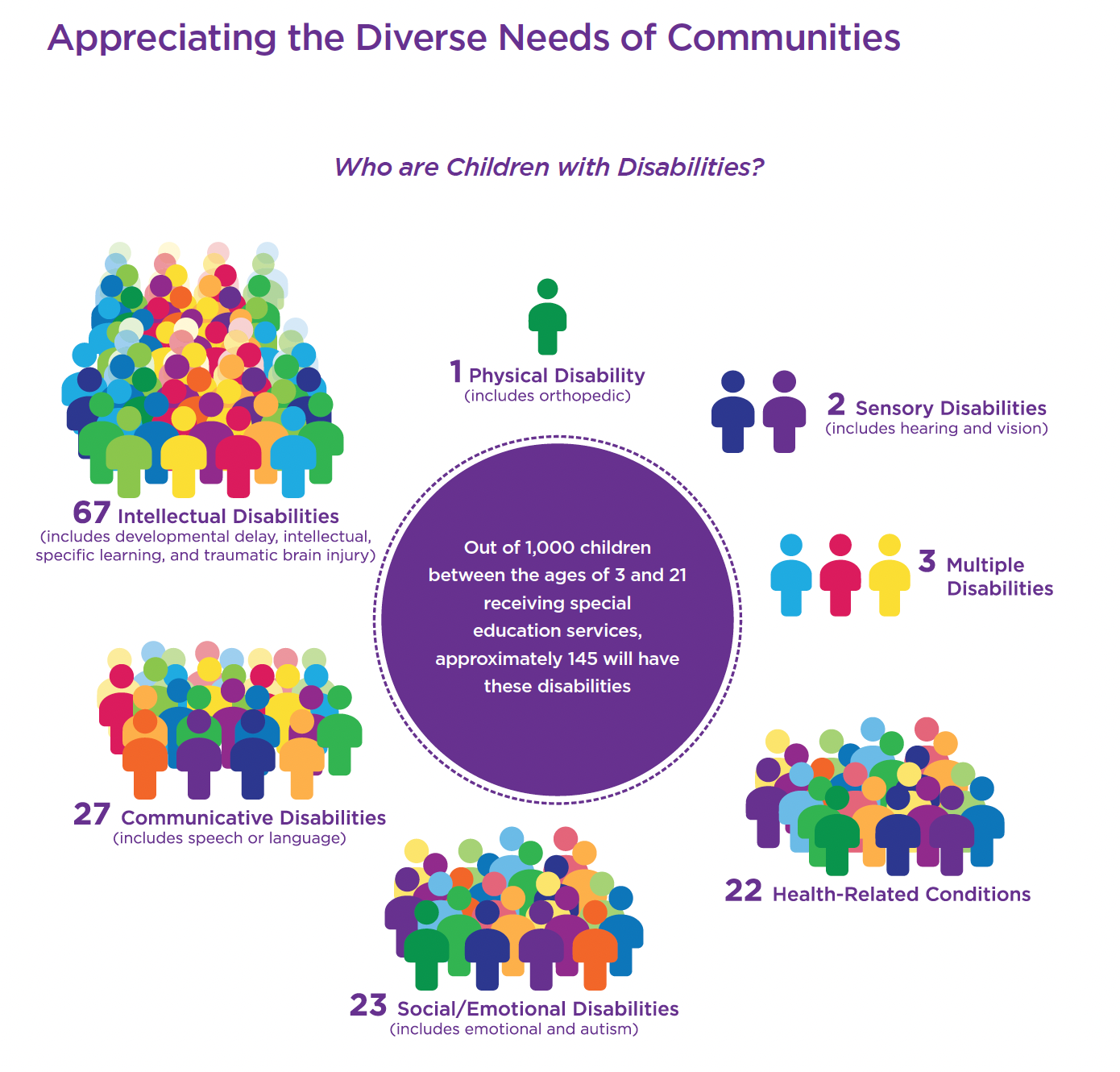
Opportunities for physical, cognitive, communicative, social/emotional, and sensory development should intentionally be provided during play in order to create a truly inclusive and embracing play experience that addresses the developmental needs of the whole child - physical, social, sensory, cognitive, and communication.
Beyond disability, there are abilities; beyond accessibility, there is inclusion. Disability is a natural part of the human experience that in no way diminishes a child's right to fully participate in all aspects of childhood, including play. Disability is often mistakenly understood as a child's inability to experience the play environment because of limitations caused by their disability.
The child's right to equality of opportunity, full participation, and independence in play implies the promise that children should not be subjected to inequality by characteristics over which they have no control.
Thoughtfully planned environments, services, and programs, can create opportunities to ensure that people of all ages and abilities can be both physically and socially active through play and recreation, and dramatically impact children's play experiences. While necessary, the removal of physical barriers to access in play environments does not guarantee social inclusion, or the opportunity to actively participate. The Seven Principles of Inclusive Playground Design, developed by Utah State's Center for Persons with Disabilities and PlayCore, move play environments beyond minimum accessibility and seek to create usable play environments which recognize everyone's right to fully participate in equitable play opportunities and independently engage in the lifelong developmental benefits of play.
Contact among children with different abilities is often not enough to get children playing together or to create true inclusive play experiences. Teaching or facilitating children about similarities and differences, and how they can successfully play together takes inclusive play to the next level and is critical to meaningful play for children of all abilities. Intentional strategies to promote disability awareness provides children the tools to ask questions, get accurate information, explore their feelings, and learn how to positively interact with their peers.
Research shows that disability awareness intervention has significant and positive effects on children's understanding and attitude toward people with disabilities. The Joint Position Statement of the Division for Early Childhood (DEC) and the National Association for the Education of Young Children (NAEYC) states that the desired results of inclusive experiences for children with and without disabilities and their families include a sense of belonging and membership, positive social relationships and friendships, and development and learning for children to reach their full potential.
By equipping children of all abilities with inclusive environments and the skills to play together independently, children will feel nurtured, encouraged, respected, and active during play - both physically and socially - thereby creating a sense of community among all children.
This article was written by Keith Christensen, Ph.D., Faculty Fellow, Utah State University, Center for Persons with Disabilities.
